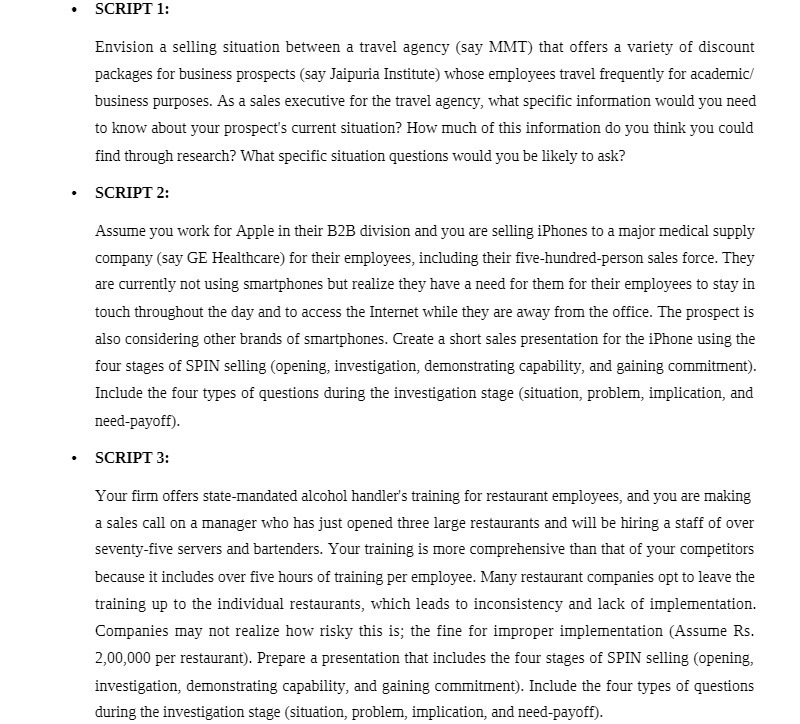SCRIPT 1: Envision a selling situation between a travel agency (say MMT) that offers a variety of discount packages for business prospects (say Jaipuria Institute) whose employees travel frequently for academic/ business purposes. As a sales executive for the travel agency, what specific information would you need to know about your prospect's current situation? How much of this information do you think you could find through research? What specific situation questions would you be likely to ask? SCRIPT 2: Assume you work for Apple in their B2B division and you are selling iPhones to a major medical supply company (say GE Healthcare) for their employees, including their five-hundred-person sales force. They are currently not using smartphones but realize they have a need for them for their employees to stay in touch throughout the day and to access the Internet while they are away from the office. The prospect is also considering other brands of smartphones. Create a short sales presentation for the iPhone using the four stages of SPIN selling (opening, investigation, demonstrating capability, and gaining commitment). Include the four types of questions during the investigation stage (situation, problem, implication, and need-payoff). . SCRIPT 3: Your firm offers state-mandated alcohol handler's training for restaurant employees, and you are making a sales call on a manager who has just opened three large restaurants and will be hiring a staff of over seventy-five servers and bartenders. Your training is more comprehensive than that of your competitors because it includes over five hours of training per employee. Many restaurant companies opt to leave the training up to the individual restaurants, which leads to inconsistency and lack of implementation. Companies may not realize how risky this is; the fine for improper implementation (Assume Rs. 2,00,000 per restaurant). Prepare a presentation that includes the four stages of SPIN selling (opening, investigation, demonstrating capability, and gaining commitment). Include the four types of questions during the investigation stage (situation, problem, implication, and need-payoff)







